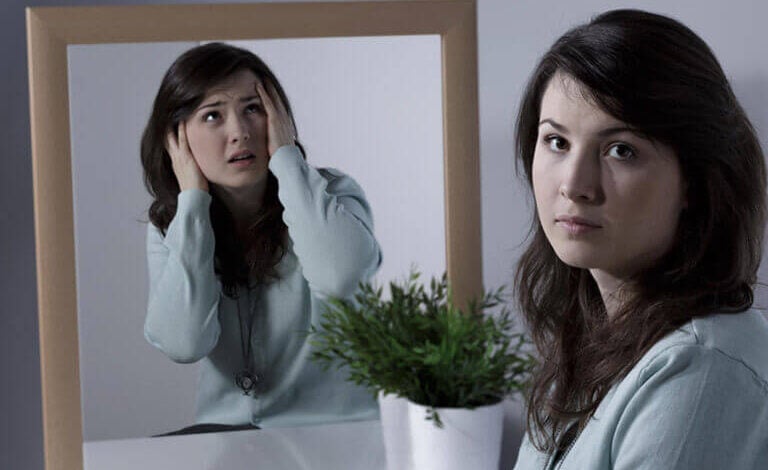With the legalization of marijuana, or cannabis, in many states across the United States, its use and abuse among teens has become widespread than it ever was for alcohol. The accelerated expansion of many cannabis products such as oils, edibles and inhaled substances and higher potency products have also been reported.
In the past, there were many misconceptions about marijuana as it is herbal in nature. However, recent studies highlight the relationship between acute marijuana use and cannabis-induced psychosis (CIP) as well as a dramatic rise in emergency department (ED) visits related to the drug, particularly among individuals who are already at risk of psychosis.
There were approximately 455,668 marijuana-related ED visits in 2011, according to the Substance Abuse and Mental Health Services Administration (SAMHSA) and Drug Abuse Warning Network (DAWN). Statistics also indicate that marijuana is only next to opiates in admissions to treatment facilities in the United States.
A Heightened Risk of Psychosis in Marijuana users
In the wake of lacking information and studies on the cannabis use, Cannabis and Psychosis: Explore the Link is a new website that aims to increase awareness of marijuana-induced psychosis and share teens’ first-hand experience with marijuana. The website is a part of a project by the Schizophrenia Society of Canada.
Psychosis, which is described as a “loss of contact with reality”, occurs when an individual has difficulty distinguishing between real and imaginary. Individuals who develop psychosis may experience visual hallucinations, hear voices or have omnipresent delusional thoughts.
The Cannabis and Psychosis: Explore the Link project revealed that:
- 17 is the average age when male and female teens start using marijuana.
- Initiating marijuana use in the teenage years multiplies their chances of developing mental disorder by 4 to 12 times.
- Regular use of marijuana products can advance the development of psychotic disorders such as schizophrenia, bipolar disorder or post-traumatic stress disorder (PTSD).
The website further addressed how cannabis can affect men and women differently and the negative effects that its use has on individuals who are diagnosed with a mental illness. For example, people who have psychotic disorders such as schizophrenia experience more frequent hospitalizations and relapses compared to individuals with psychosis who do not use marijuana. There are also studies that demonstrate that marijuana use is also associated with a heightened risk for depression and anxiety.

Risk Factors for Marijuana-Induced Psychosis
Cannabis users are at a greater risk of experiencing psychosis, according to a recent study published in JAMA Psychiatry. The prospective study investigated 3,720 adolescents who represented nearly 76 percent of all grade 7 students from 31 high schools in the greater Montreal area.
The heightened risk of psychosis in cannabis users was not limited to those with a family history of schizophrenia or some other genetic factor. In addition, the researchers found that in the year after their initial cannabis use, teens demonstrated an increase in psychosis symptoms.
Professional Treatment for Marijuana Addiction
It is difficult to understand the ill-effects of marijuana until the use becomes problematic. Approximately 30 percent of marijuana users develop dependence or abuse the drug, according to statistics reported by the National Institute on Drug Abuse (NIDA). Despite the common misconception that marijuana isn’t addictive, like any other drug, cannabis leads to physical and mental dysfunctions that can hamper one’s routine activities and ability to function in their daily lives.
Studies also reveal that long-term marijuana abuse can change the density and volume of the amygdala and nucleus accumbens in the brain. Furthermore, the psychoactive properties of marijuana have been found to diminish the gray matter volume that is important for regulating reasoning, emotions and reward.
Treatment for Marijuana Abuse and Addiction at AKUA
Considering the negative effects of marijuana on the brain, it is critical that marijuana abuse and addiction be recognized and treated in a timely manner. At AKUA Mind & Body, our holistic treatment programs for cannabis use disorders combines eastern and western therapies that promote healing of the body and mind.
Recovery from marijuana abuse and addiction is possible with our clinical team of mental health and addiction experts. Call our 24/7 helpline to learn more about our detox, residential and intensive outpatient program (IOP) treatment for marijuana abuse and addiction.
References:
- https://www.nimh.nih.gov/health/topics/schizophrenia/raise/what-is-psychosis.shtm
- http://cannabisandpsychosis.ca/
- https://jamanetwork.com/journals/jamapsychiatry/article-abstract/2681642
24/7 ADMISSION HELPLINE 888-629-6707




